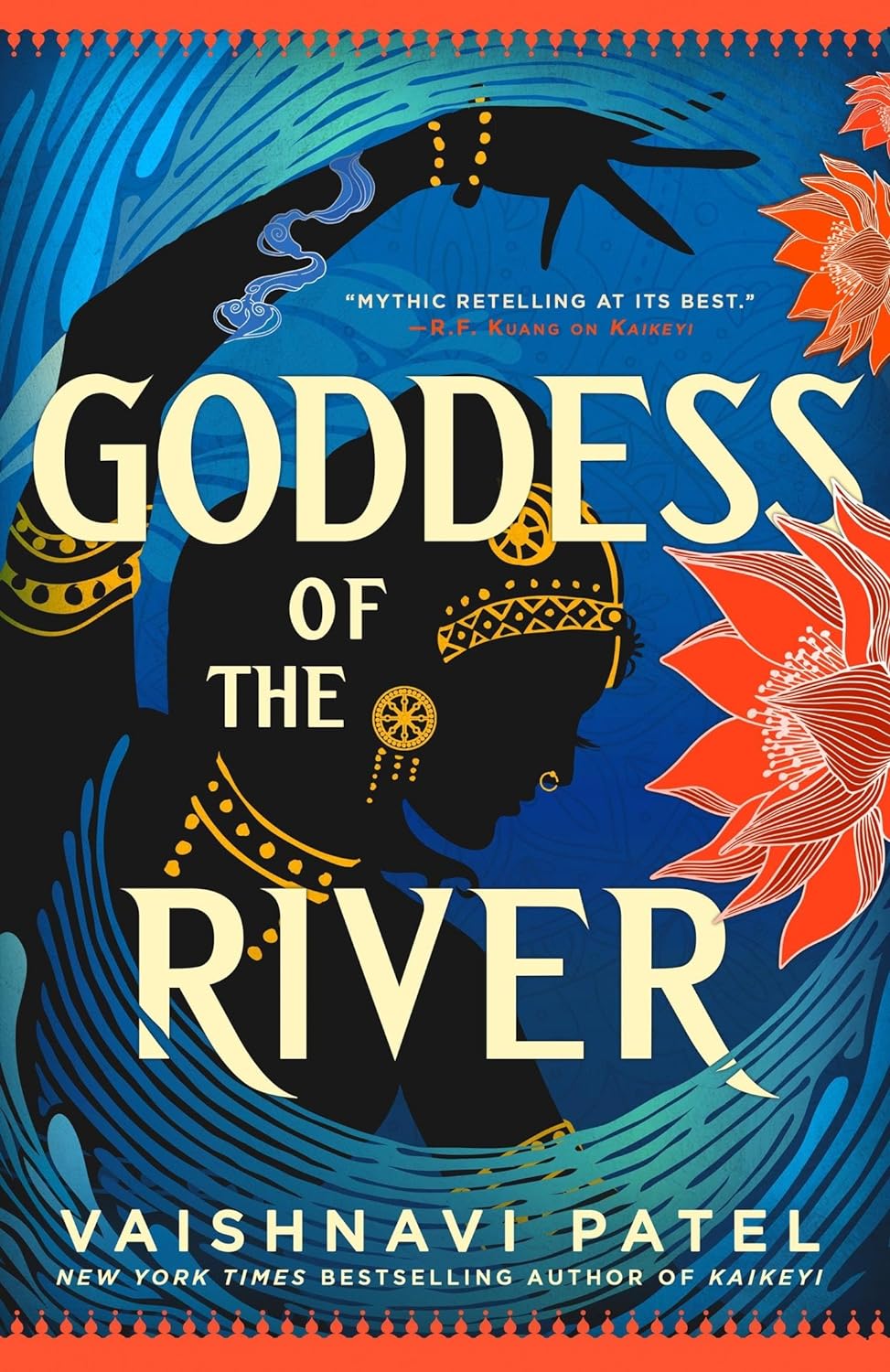Goddess of the River, by Vaishnavi Patel
2 Jun 2024The Book

Synopsis:
A mother and a son. A goddess and a prince. A curse and an oath. A river whose course will change the fate of the world.
Ganga, joyful goddess of the river, serves as caretaker to the mischievous godlings who roam her banks. But when their antics incur the wrath of a powerful sage, Ganga is cursed to become mortal, bound to her human form until she fulfills the obligations of the curse.
Though she knows nothing of mortal life, Ganga weds King Shantanu and becomes a queen, determined to regain her freedom no matter the cost. But in a cruel turn of fate, just as she is freed of her binding, she is forced to leave her infant son behind.Her son, prince Devavrata, unwittingly carries the legacy of Ganga's curse. And when he makes an oath that he will never claim his father's throne, he sets in motion a chain of events that will end in a terrible and tragic war.
As the years unfold, Ganga and Devavrata are drawn together again and again, each confluence another step on a path that has been written in the stars, in this deeply moving and masterful tale of duty, destiny, and the unwavering bond between mother and son.
My Review
Goddess of the River is a fantasy retelling of Ganga, goddess of the river, and her mortal son's story, written by Vaishnavi Patel, and published by Orbit Books. A lush and powerful story inspired by the Mahabharata, which proposes an interesting dilemma between duty and justice, all told with the perspective of motherhood, allowing us to explore such a rich mythology as Hindu.
Ganga, goddess of the river, is cursed by a powerful sage to become mortal, and to be bound to this form until she gives birth to the seven Vasus; despite being unaware of mortal manners, she weds king Shantanu, raja of Hashtipur, greedy and powerful, who wants to ensure his lineage. Ganga manages to give birth and liberate of their mortal envelope six of the seven Vasus; but in a twist of destiny, her last son, Devavrata (who will be known as Bhishma), the one that frees her of her mortal envelope, survives to grow up in his mortal form, and to avoid a bloodshed, takes a vow renouncing the throne and protecting the dynasty. However, this vow will end being one of the reasons for the great war that happens decades later.
Bhishma himself is a character that presents an interesting dilemma: he's conducting his life according to this oath, considering it the most important thing of a man; but we can see how the fulfillment of this promise not only moves him to act in unfair ways, but also causes more grievances just for the sake of fighting for the side he promised.
With Ganga's character, Patel masterfully captures the pains and the suffering that many times are attached to motherhood, while also showing multiple strong women being oppressed by a system that essentially favours men, putting them as an inferior caste.
Pacing is a bit irregular, being really on spot at the start and in the ending, but it is true that the middle drags a bit, but it can be attributed to the complexity of a story that is inspired by the Mahabharata; however, it is difficult to not get charmed into the storytelling and the world that Patel captures with her words. Her prose is simply excellent at transmitting the gravity of the story
If you are looking for a great way to approach to Hindu culture while being a captivating and powerful story, Goddess of the River is a great choice. An excellent story in which Vaishnavi Patel brings this piece of mythology to a new public.
The Author/s

Vaishnavi Patel
Vaishnavi Patel is a lawyer focusing on constitutional law and civil rights. She likes to write at the intersection of Indian myth, feminism, and anti-colonialism. She is the author of the New York Times bestselling novel Kaikeyi. Vaishnavi grew up in and around Chicago, and in her spare time, enjoys activities that are almost stereotypically Midwestern: knitting, ice skating, drinking hot chocolate, and making hotdish.
